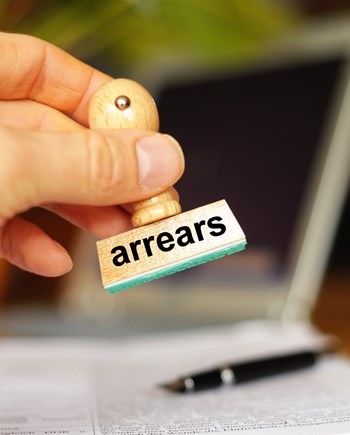
As previously covered in this publication and elsewhere, sweeping legislative reforms under the 2019 Housing Stability and Tenant Protection Act (HSTPA) intended to protect rental tenants perhaps inadvertently—and, many argue, deleteriously—included cooperatives in their regulations. Among those regulations is the prohibition of collecting “additional rent” charges—such as late fees, attorney fees, sublet fees, and the like—in summary nonpayment proceedings in Housing Court.
Because the structure of cooperative ownership relies on a proprietary lease for the right to occupy a unit within the building, legislation that covers residential leasehold agreements is inclusive of co-ops and their shareholders. In cases where a shareholder is being legally pursued for nonpayment of “rent”—or, in co-op parlance, the monthly charges referred to as “maintenance”—there’s a strong likelihood that in addition to maintenance, the shareholder owes other monies to the co-op for late fees, assessments, repair fees, and attorney fees that accrue in the course of the proceedings or any other legal action that has been taken against them.
Unlike rental apartments where unpaid and unrecovered charges from a tenant would fall to the landlord, in a co-op the remaining shareholders are on the hook for any bad debts. It is therefore incumbent upon boards to avoid shouldering their neighbors with undue financial burdens in ways that are legally permissible.
The Case for Nonjudicial Foreclosure
One possibility suggested for recovering fees from a shareholder in arrears now that HSTPA prevents “additional rent” collection is commencing what is known as a Uniform Commercial Code (UCC) Article 9 nonjudicial foreclosure. According to Marc Schneider, managing partner at law firm Schneider Buchel in Garden City, New York, this option is available because of co-op shareholders owning shares rather than real property (as is the case in ownership of a condo or single-family home).
A sale of shares via a nonjudicial foreclosure has the benefit of avoiding the courts and therefore the legal fees and protracted timeline associated with them. Once such a foreclosure is initiated, says Schneider, the shareholder’s only recourse is to file a lawsuit, which would of course require additional time and money on the part of the shareholder. Schneider asserts that the threat of losing the shares in the foreclosure sale is enough to force the shareholder to make the co-op whole or to strike a deal that suits both parties.
Schneider points out that “In order to do this, the governing documents must have language entitling the co-op to the legal fees being sought (which most proprietary leases do), and entitling the co-op to place a lien on the shareholder’s shares for the indebtedness and obligations.” He adds that this method is best reserved for arrears collection only—not for eviction of the shareholder from the co-op unit.
The Case Against Nonjudicial Foreclosure
But not everyone agrees with the utility—or legality—of this method. Andrew J. Wagner, shareholder in the New York office of Anderson Kill P.C. who specializes in co-op and condo law, recently wrote an article published in the New York Law Journal in which he advocates against the use of nonjudicial foreclosures by co-op boards looking to sidestep restrictions imposed by HSTPA.
He argues that even if a proprietary lease permits a co-op to commence nonjudicial foreclosure for reasons of nonpayment, such an action “denies a shareholder a forum for asserting a warranty of habitability defense,” which has been affirmed in appellate court as being “against public policy.” Wagner cites Real Property Law in support of this position, the Warranty of Habitability Statute of which states, “‘[A]ny agreement by a lessee or tenant of a dwelling waiving or modifying his rights as set forth in this section shall be void as contrary to public policy.’”
Since such an action might not even be enforceable, it might prompt the shareholder to pursue higher court remedies. That means that the co-op might end up having responsibility not only for the arrears, but also for its own legal defense costs -- as well as the possibility of needing to reimburse the delinquent shareholder for his legal fees should he end up winning suit.
Is Restitution Possible?
In Wagner’s view, although case law holds that nonpayment of rent cannot be a basis for lease termination, “because it frustrates the shareholder’s ability to interpose a warranty of habitability defense,” there is nothing to prevent a co-op board from seeking to recover unpaid maintenance and other fees after a shareholder or tenant has been lawfully evicted.
The strategy he suggests requires two separate actions—one for recovery of unpaid maintenance and one for the award of any additional fees and costs. According to Wagner, “Pursuing unpaid maintenance in Housing Court, and any additional maintenance charges in a separate, plenary action, is the safest and more cost-effective option.”
Cooper Smith is a staff writer/reporter for The Cooperator.






Leave a Comment